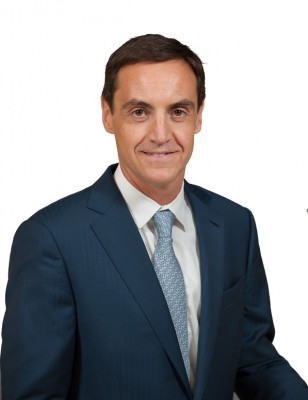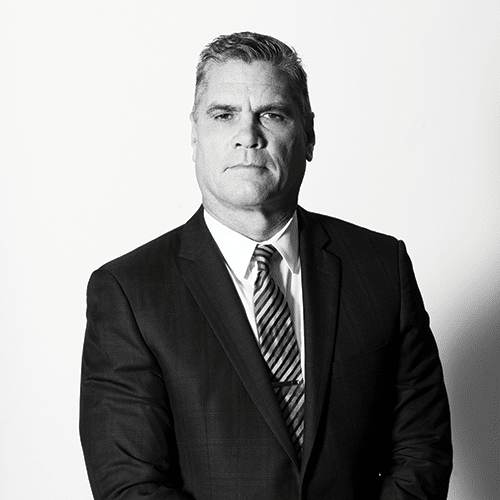Companies that expect to grow and succeed in Florida must succeed within the Hispanic community. Most Hispanics in the United States live in California, Texas, or Florida. In fact, 23 percent of Florida’s residents checked “Hispanic” or “Latino” on the most recent national Census. The Pew Research Center lists the state’s total Hispanic population at 4,354,000 with a median age of 33 (which reflects national trends). As Florida region president for the largest wireless company in the United States, Mariano Legaz is helping Verizon cater to a vibrant and growing demographic that demands great service and uninterrupted connectivity.

Legaz, an electrical engineer by training, grew up and attended university in his native country of Argentina. He took a job with a start-up wireless company then owned by one of the companies that later formed Verizon. That led to an international move. Legaz moved to the United States, performed well in various roles including vice president of supply chain and in 2013 accepted a role in regional leadership. Today, Legaz oversees nearly 2,400 employees while leading efforts in sales, operations, marketing, distribution, customer service, and financial performance.
With 19.3 million residents, Florida is poised to overtake New York as the third-most populous state in the union. Verizon’s presence in Florida is ever-growing. Right now the company owns more than 80 retail stores, numerous corporate offices, and a large customer service call center.
Verizon spent the last decade becoming the number one brand in the telecommunications industry. Now, the company is looking to add to its competitive advantage shifting more focus to customer service. Legaz’s role is to execute that and other strategies at all levels. To do so, he must know and understand his diverse market. Florida is home to traditional families, retirees, seasonal residents, and that all-important booming Hispanic demographic. The varied market, though a challenge, is something that Legaz is able to use to his advantage. “The variety in Florida allows Verizon to be comprehensive in the solutions and offerings we provide,” he remarks.
And while providing great service that caters to all demographics is important, there’s no denying that the Hispanic consumer drives regional growth. “It’s a cornerstone of our strategy,” says Legaz. “We need to be extremely effective within the Hispanic community.” Generally speaking, Hispanic users are early adopters of new technologies and over-index on data usage. Verizon is responding by offering shared data plans, better pricing, and multiline accounts. Most recently, the provider is introducing long-distance plans that include every country in Latin America. Since Hispanics statistically use so much data, Verizon is offering its More Everything plans that incentivize customers to move up to higher tiers of data.
Two other areas are key to regional success: personnel and business solutions. Legaz is actively working to be as diverse as possible when hiring and is instructing his team across the state to do the same. In some Florida locations, as much as 80 percent of the employee base is bilingual. This allows Verizon to serve its customers in their language of preference. Secondly, Hispanics in the area are business owners. Twenty-two percent of area businesses—compared to eight percent nationally—are Hispanic-owned. Verizon, therefore, is pushing small-business solutions such as telematics and a suite of products that—among other things—track packages, assist in fleet management, and provide real-time analytics.
Verizon’s 2013 revenues topped $120 billion, and the company is pouring some of those funds back into the community. For Legaz, it’s more about opportunity than obligation. “We’re one of the most successful companies in the country, and that means we are in the unique position to share our tools and expertise to enable groups, programs, and initiatives that benefit our society as a whole,” he says. As region president, he enjoys providing his employees the chance to contribute outside regular business duties.
Verizon’s community outreach efforts have centered on education, sustainability, health care, and domestic violence prevention. A national effort known as HopeLine encourages individuals to donate old cell phones, which Verizon recycles. Profits from the program go to shelters that serve families affected by domestic violence in the United States. In addition to phone recycling, Verizon refurbishes phones and loads them with 3,000 anytime minutes and texting, so survivors and victims can call for help as needed. Further, a new HopeLine app provides resources and assistance. Since 2001, the program has gathered 10.8 million phones, donated 180,000 phones, and awarded $21.4 million to national organizations. One HopeLine partner in Florida is the Department of Children and Families certified domestic violence center known as The Spring, which recently received a $15,000 grant through the program.
In the coming months, Legaz and other region presidents will direct their teams to continue pushing the customer-centric approach. As they do, Verizon will further mature its XLTE network, which increases speeds and doubles bandwidth nationwide. Other coming advancements include Voice over LTE and enhanced video calling. “It’s always fun,” says Legaz of the constant developments. “We look forward to bringing these new products and services to our Florida consumer base.”
Check out all of Hispanic Executive‘s 2013 Top 10 Líderes here.
LÍDER INSIGHT
“I have a fantastic team, but without asking I know that they expect me to be engaged and open. They expect me to participate. In return, I want people to be passionate and find areas of work that they love. I don’t want them looking at the clock to see when the end of the day is coming. I try to motivate and energize the team around the company’s strategies by being approachable, responsive, and engaging in the same work I ask them to do.”

